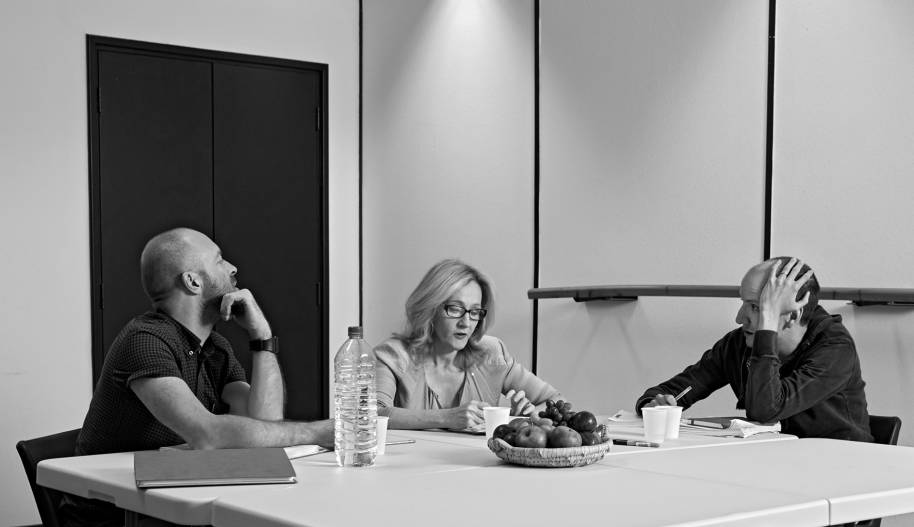
John Tiffany first met J.K. Rowling in 1995. One of the Edinburgh cafés in which she wrote Harry Potter was in the Traverse Theatre, where he worked. They were about to make it big – she in literature, he in theatre – but back then they were just strangers who exchanged the odd smile.
‘Once the book came out, she wasn’t hanging around cafés so I never saw her since Harry Potter became Harry Potter, until last January,’ John tells me, beaming and leaning back slightly on his chair with a boyish restlessness. He spent those 20 years becoming the celebrated director of productions Black Watch and Once, amongst others.
It’s just one of those exquisite little twists of fate that the next time they met was to collaborate on Harry Potter and the Cursed Child.
‘I’d asked both sets of kids in my life, my three nephews and my godchildren, whether I should do this show. They’d all gone through Harry Potter and they all said, “We’ll kill you if you don’t.” So the journey began.
‘I knew he was the writer I wanted to work with,’ John continues, pointing at the man across the table – British writer Jack Thorne. They worked together on the 2013 theatre adaptation of Let the Right One In, which accounts for the infectious camaraderie between them.
Right now, John and Jack are on a lunch break between workshops for the Cursed Child. We’re sitting at a table covered in scripts, highlighters and blunt lead pencils.
‘I’ve said it before and I’ll say it again, I’d do anything he asked me to do,’ Jack says, pointing his thumb back at John.
‘Oh, stop it,’ John says and turns to me. ‘We went to Edinburgh to Jo’s house – Jack and I. Then I sort of watched the love affair begin. You know, it’s like taking your best friend to meet your new partner and then realising... Well, it was two writers meeting, you don’t get a look-in.’

‘I’d read all the books in my twenties and I’d go to the cinema and watch all the films by myself. I was deeply in love with Potter already, so the chance to do this...’ says Jack, like he still can’t believe J.K. Rowling has given him characters from those books and films to write onto the stage.
‘We started talking about ideas and her generosity in the way she listened to what was inside our heads, and then fed into that with her brilliant mind, was incredible. You were very clear back then, John, that you didn’t want to do something historical.’
‘No prequels!’ says John, echoing J.K. Rowling’s Twitter account. ‘But also, I knew from seeing the excitement in the kids I’d shared the books with that we had to bring darkness back. There had to be new jeopardy.’
The three of them set the plot that day in J.K. Rowling’s writing room. They strung together the narrative then and there in notebooks and then Jack and John flew back to London to get started.
‘We talked a lot, which was really helpful,’ says Jack, when I ask him about the task of writing dialogue for Harry Potter. ‘I read the books over and over and then tried to write things down on paper...’ He sighs. ‘Ah, it’s awesome, I mean, it’s so much fun.’
Once Jack, John and J.K. Rowling had locked in a story, they had to find a stage to play it out on. Why did they choose the Palace Theatre, then, I ask.
‘It chose us, I think,’ says John. ‘I mean, it’s exciting to imagine anyone going to see Harry Potter there. It’s a Gothic theatre, there’s a majesty there and it has this Hogwarts feel to it.’
The excitement in John’s face is real. The quivering is Jack’s voice is genuine. These are two accomplished and talented men but on this play, more than anything they’ve ever worked on, they’re making magic and are both enchanted by that.
It’s obvious why J.K. Rowling has entrusted Harry Potter’s future to Jack and John: they’re the perfect pair to bring Harry Potter back.
Harry Potter and the Cursed Child comes to London’s West End summer 2016.


